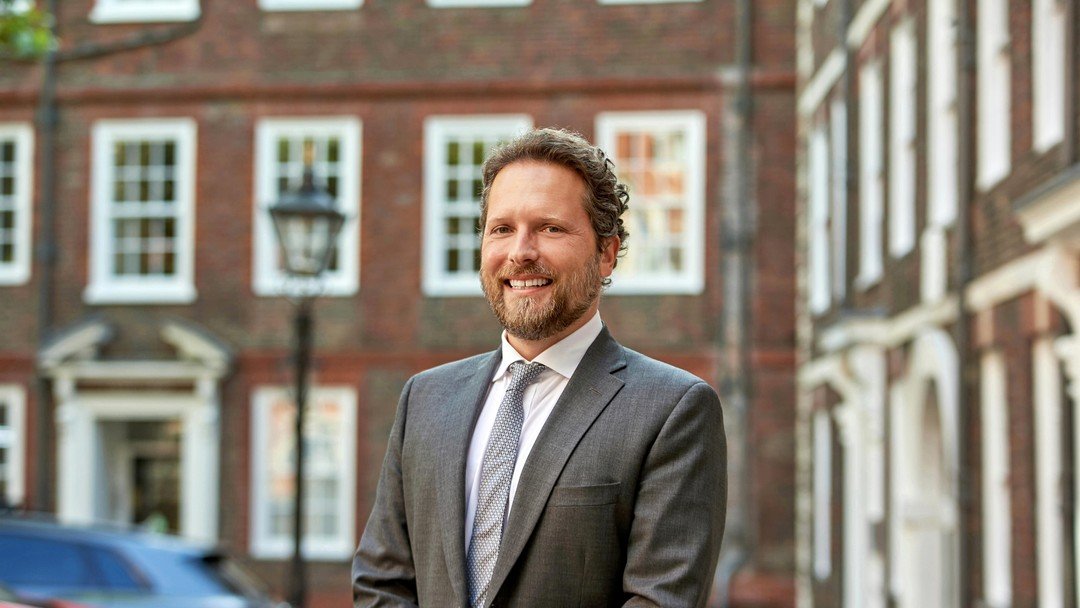SJ Interview: Jamie Goldsmith KC

Jamie Goldsmith KC is a barrister and founder of Pro Bono Connect, a network that matches pro bono barristers and solicitors. He talks to Solicitors Journal about his latest venture, the launch of the UK’s first pro bono litigation support service
What inspired you to become a barrister? And how did you get to where you are today?
My father was a barrister. I always admired what he did. That, coupled with childhood reading about the great orator, Marshall Hall, inspired me to be a barrister. At university, I briefly flirted with the business world when I set up a website with some friends that advertised everything social that was going on for students. It was the dotcom boom of the late ‘90s after all. However, in my final year of university, I did a mini-pupillage at One Essex Court. I sat with Daniel Toledano (now KC but then a junior). I watched him wipe the floor with a pontificating silk at a hearing and realised that this was the only job for me.
You have worked on some high-profile cases; can you tell us a bit about how you came to work on these cases and the challenges you faced?
My favourite (paid) case was undoubtedly acting for Liverpool FC as junior counsel in connection with the corporate battle in 2010. At the time, Liverpool was playing badly, just above the relegation zone and in serious financial difficulty that could have led to a 6-point deduction if the club went into administration. I got a call from my senior clerk while I was putting my daughter to bed who, knowing that I’m an avid Liverpool fan, said that he had a case for me that I couldn’t miss. He was right. It was fascinating from a legal perspective and, also, hugely exciting. There was an army of Liverpool fans cheering us on in the courts. It was quite the spectacle. For me, the case only lasted a few weeks, although I was working well into the early hours of the morning almost every night. Two injunctions later, we had won. The fact that I was a supporter of Liverpool FC made it all the sweeter.
You are the founder of Pro Bono Connect. Can you tell us a bit about how important the ability of lawyers to act pro bono is?
A fair and just legal system is the bedrock of any democratic society. That means that the legal system must be accessible to all, not only those who can afford to pay for legal services. Sadly, with cuts to legal aid and a cost-of-living crisis, the number of people who cannot pay for legal help is growing. Pro bono lawyers have a huge role to play in ensuring that justice is not like the Ritz Hotel, open only to those who can afford it (as Sir James Matthew, an Irish judge, famously once said). Pro bono work can also be key to the development of the law. Without Mrs Donaghue’s lawyers acting pro bono, Mr Stevenson’s snail-infested ginger beer might not have led to the development of the concept of a duty of care. Imagine that.
What is the motivation behind lawyers wanting to work pro bono?
There are a wide variety of reasons why lawyers may want to do some pro bono work. As lawyers, we have a responsibility to uphold the rule of law and that means first and foremost ensuring that everyone has access to the law. Pro bono represents an opportunity for lawyers to contribute to upholding the fabric of society. It can also be good for your professional development. Barristers can get advocacy opportunities they might not otherwise have been presented with. Solicitors can get more experience of trials than they might usually get. You can also make great connections with other lawyers, for example, through the Pro Bono Connect scheme. In short, as a friend once told me, pro bono is good for society, it is good for your soul and it is good for your career.
Tell us about Pro Bono Connect and its achievements so far…
Pro Bono Connect matches barristers and solicitors so that they can work together as a team (www.probonoconnect.co.uk).
The idea grew out of my experience of doing a number of pro bono cases about 10 years ago, where I acted as barrister on my own. That meant that I was doing the solicitor’s job as well as my usual normal work. I thought that it would more efficient and effective if we were able to work together with solicitors, as we normally do in paid litigation. It might also encourage more lawyers to take on pro bono cases.
Together with another barrister at One Essex Court, Eleanor Campbell, we began Pro Bono Connect as a pilot in 2015, with five chambers and five law firms. Now, there are over 100 participating firms and chambers. We have had cases at all levels: tribunals, the High Court, the Court of Appeal and, even, the Supreme Court. We were awarded Pro Bono Innovation of the Year at the Advocate Awards in 2018 and go from strength to strength.
There is no cost to joining the scheme and no fixed requirement to take on any cases. We only ask that participating lawyers receive and consider requests for help. We have always worked very closely with Advocate, the former Bar Pro Bono Unit, through whom the large majority of our cases come. Since 2020, Pro Bono Connect has been under the governance of LawWorks and, in particular, our excellent Executive Officer, Fatima Bhula. We also work very closely with the National Pro Bono Centre. For me, that is what pro bono is all about: people coming together to help those who need it most.
Why did you choose to launch the UK’s first pro bono litigation support service? How important is the input of experts in modern litigation?
The future of pro bono doesn’t just require lawyers. There is a whole wealth of litigation support providers and experts needed in modern litigation. I know that from first-hand experience. Around 10 years ago, I did a case pro bono for a lady whose husband had forged her signature on a bank loan and mortgage on the family home, taken the money and run. When the loan wasn’t repaid, the bank sought to enforce its security. My client and her young children had nowhere else to go. While I was able to find legal arguments to try to prevent their eviction, what was really critical was the assistance of a handwriting expert. However, my client had no money to pay for one. It was really difficult to find an expert willing to act for free. In the end, an expert did agree to help. Her report proved conclusively that the signature was not that of my client. The case settled within weeks.
Since Pro Bono Connect started, I have been wanting to bring experts and litigation support providers into the pro bono family. Happily, the National Pro Bono Centre had the same idea. The result of this shared vision is Pro Bono Expert Support, the first pro bono litigation support service. The service will be governed through Pro Bono Connect and administered by the National Pro Bono Centre. The initiative was launched as a pilot at the Supreme Court on 9 November 2023 with the support of Lady Rose and Mr Justice Robin Knowles.
How does the input of experts work in a pro bono context? What do you aim to achieve with this new service?
The scheme features experts from a wide range of fields including forensic accountancy, strategic communications, investigations (including financial, corporate, individual, social media), eDiscovery, case presentation, costs specialists, interpretation and translation, and a plethora of expert witnesses (including across accountancy, architecture/surveyors, engineering, oil and gas, IT/computer systems, medical, and other niche areas).
Our experts and litigation support providers will work together with a pro bono lawyer to ensure that the full spectrum of modern litigation services is available to anyone who requires them to get justice.
Assistance can be requested on Pro Bono Connect cases (as part of a team involving barristers and solicitors) but also in other pro bono cases where there is only a barrister, a solicitor or an in-house lawyer involved. There must always be a lawyer involved, however. That acts as a quality control for pro bono cases through the scheme and furthers the goal of ensuring that pro bono assistance is available in litigation wherever it is needed.
If you want to join or find out more information about Pro Bono Connect or Pro Bono Expert Support, please contact admin@probonoconnect.co.uk
What would you like to be remembered for?
I would like to hope that I made a difference in improving access to justice for those without means.
